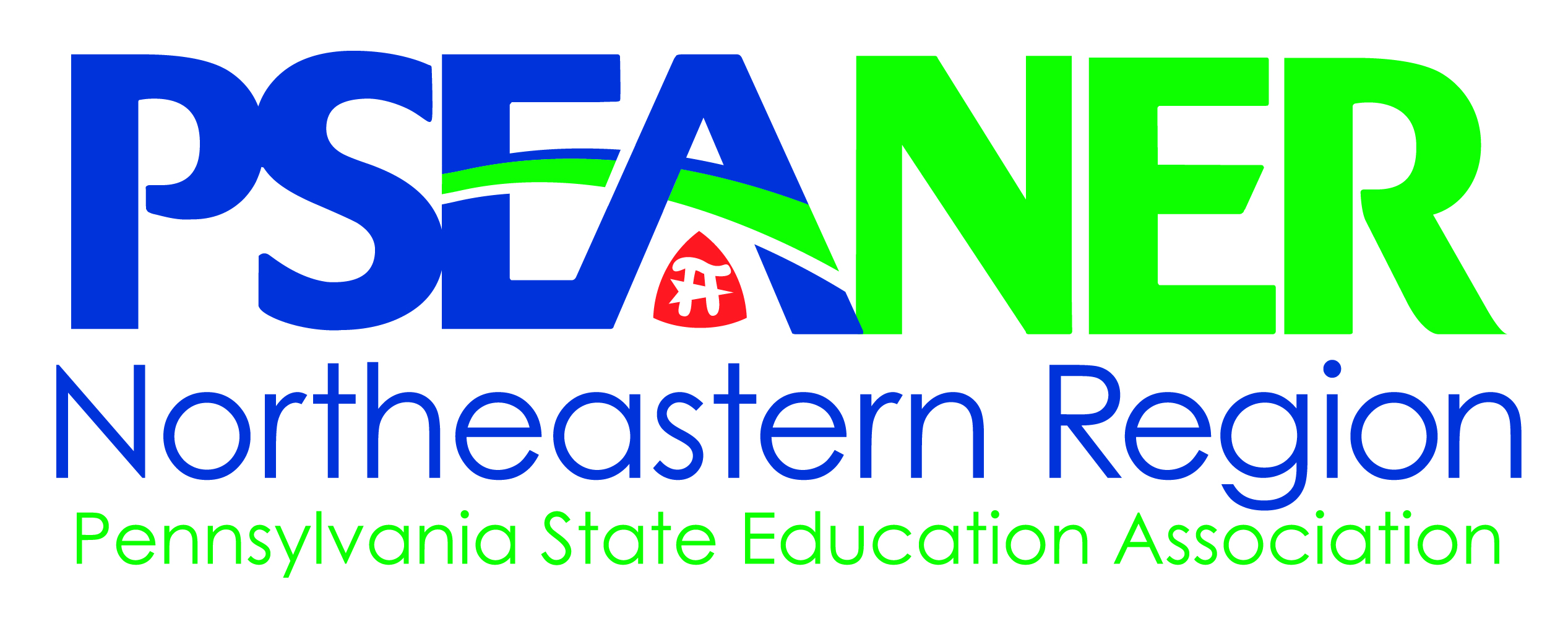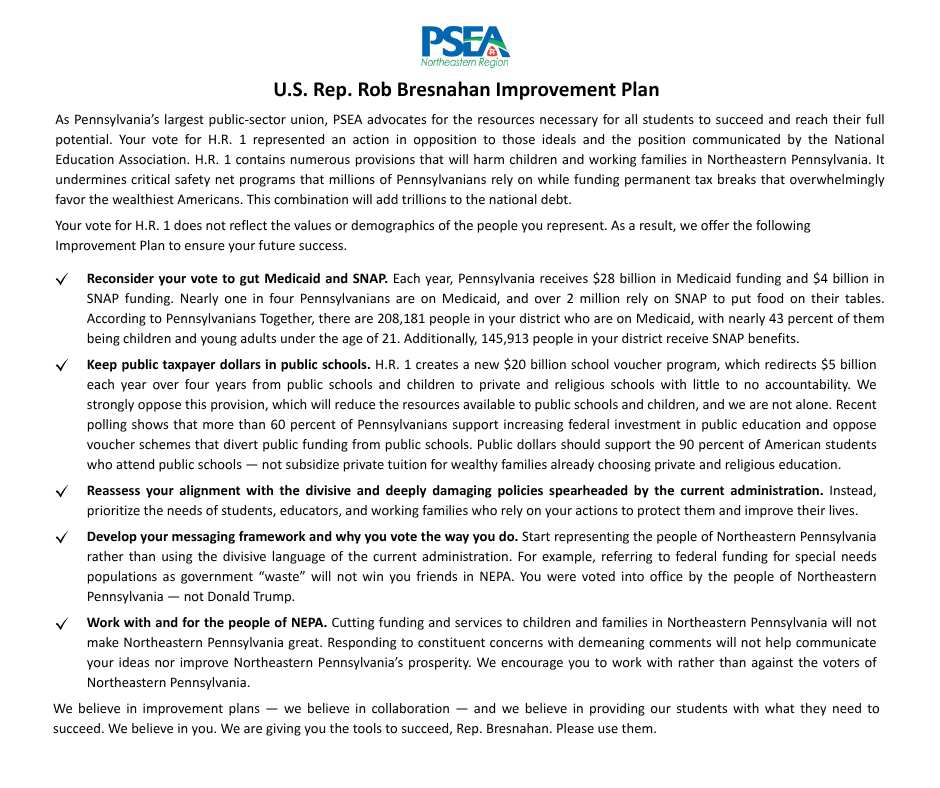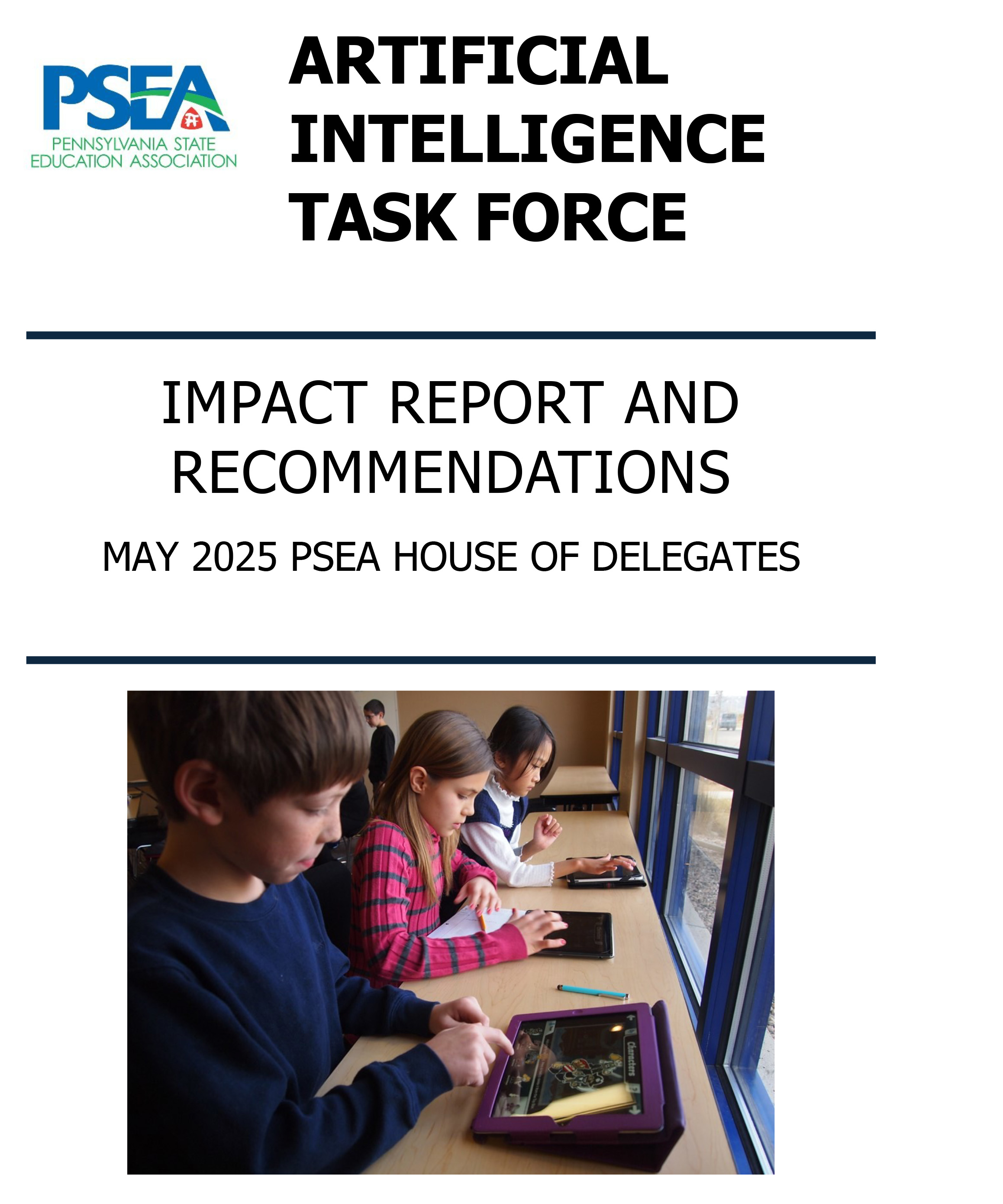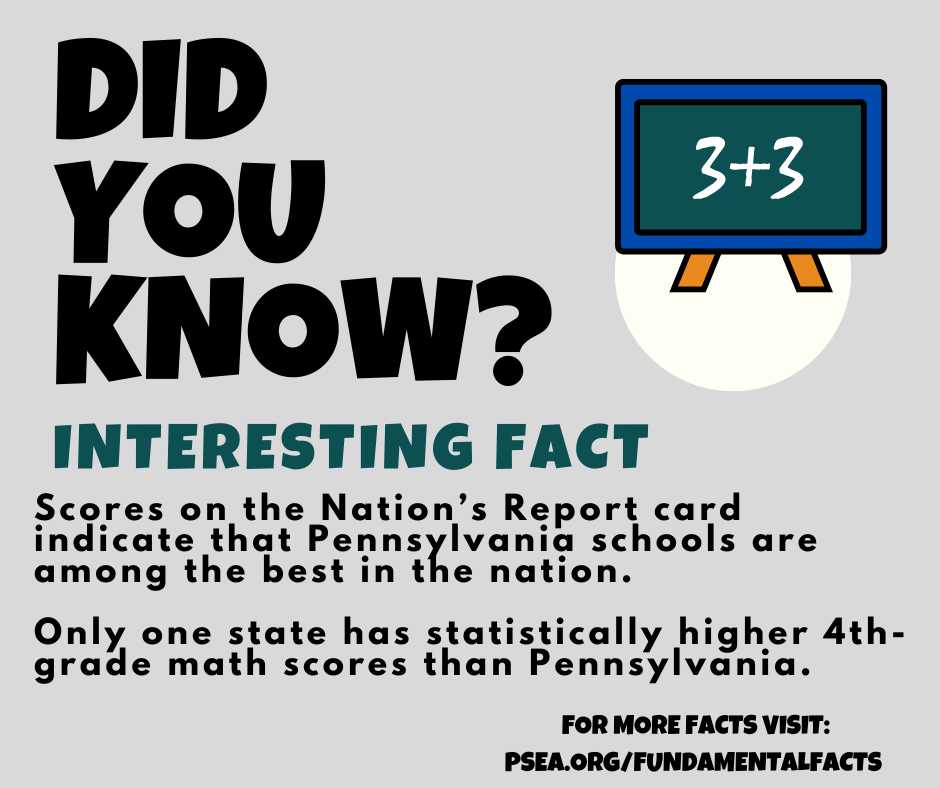
For further information contact:
Jessica Sabol jsabol@psea.org
PSEA NORTHEASTERN REGION DISAPPOINTED IN ACTIONS OF U.S. REP. BRESNAHAN - OFFERS IMPROVEMENT PLAN
Wilkes-Barre (June 11, 2025) - Leaders of the Pennsylvania State Education Association’s (PSEA) Northeastern Region are disappointed in U.S. Rep. Rob Bresnahan’s vote and continued support for the disastrous U.S. House-passed budget reconciliation bill. PSEA believes Rep. Bresnahan is not working to his full potential and, as a result, has offered an improvement plan to assist him and ensure his future success.
Improvement plans are used in the field of education to help ensure student success. PSEA Northeastern Region represents 20,073 educators, support professionals, retirees, and students.
“We believe in improvement plans, we believe in collaboration, and we believe in providing our students with what they need to succeed. That’s why we’ve created an improvement plan for Rep. Bresnahan,” PSEA Northeastern Region president Jennifer Agolino said. “If he wants to do what’s right for the children and families of northeastern Pennsylvania, he should follow it. We want to help him be successful. His success is northeastern Pennsylvania’s success.”
The House budget reconciliation bill (H.R.1) authorizes $3.75 trillion in tax cuts largely benefiting the wealthy by slashing funding for programs that millions of Pennsylvanians need to cover their health care and nutritious meals. It diverts $20 billion from public school funding over four years to pay for tax-credit vouchers for private and religious schools. And it also cuts at least $625 billion from Medicaid, which would result in the elimination of health insurance for 10.9 million Americans over the next decade. Additionally, it cuts $300 billion from the Supplemental Nutrition Assistance Program, known as SNAP or food stamps, which provides nutritious food to
hungry children and families.
Nearly one in four Pennsylvanians are on Medicaid, and over 2 million Pennsylvanians rely on SNAP to help put food on their tables. According to Pennsylvanians Together, currently, 208,181 people in Rep. Bresnahan’s district are on Medicaid, with nearly 43% of them being children and young adults under the age of 21. Additionally, 145,913 children and families in Rep. Bresnahan’s district benefit from SNAP.
“This budget plan is a disaster for working people and children in northeastern Pennsylvania,” Agolino said. “We need our elected officials in Washington to invest in the people they were elected to represent. There is nothing beautiful about taking away food, health care, and special needs services from children.”
The National Education Association reported that nearly 80 million Americans — including 38 million children and one in 10 education support professionals — receive health care coverage through Medicaid and the Children’s Health Insurance Program.
Congress is considering making significant cuts to Medicaid, which could result in students with disabilities losing access to essential therapies and services that are crucial for their well-being and survival. Additionally, millions of adults and children may lose their only source of health care. Many children who do not have significant disabilities qualify for Medicaid due to being from low-income families. Schools can bill Medicaid for services that support these students, including mental health counseling, as well as medical, dental, and vision screenings. These services can provide benefits for all students in the school.
“We are here. Our door is always open. Rep. Bresnahan, we believe in you. We are giving you the tools to succeed. Please use them,” Agolino said.
Agolino is a Title I Reading Specialist at Smithfield Elementary school in the East Stroudsburg Area School District and president of PSEA Northeastern Region. An affiliate of the National Education Association, PSEA represents about 177,000 active and retired educators and school employees, aspiring educators, higher education staff, and health care workers in Pennsylvania.
###











